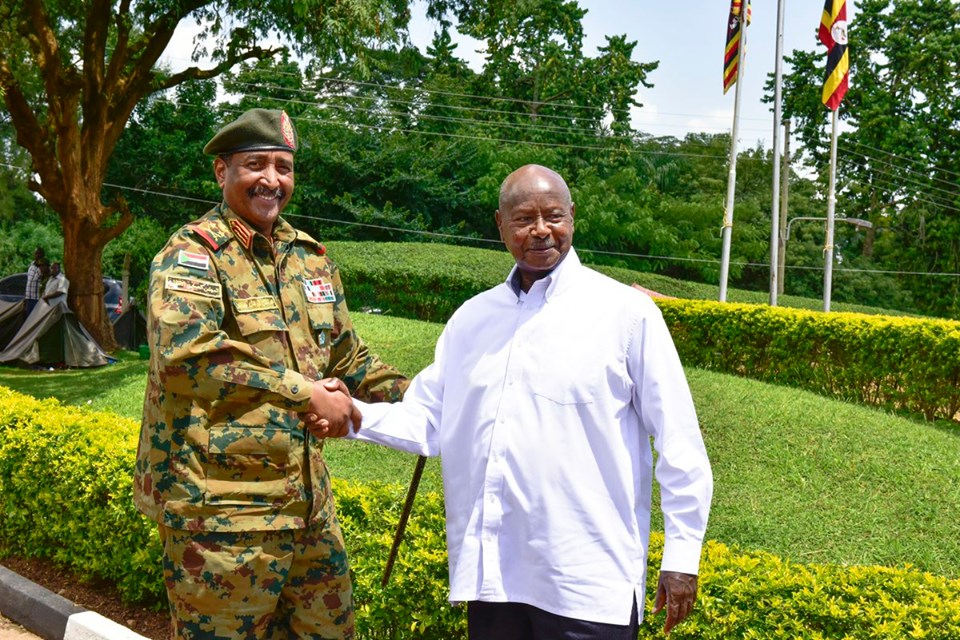On March 28, 2021, the Government of Sudan signed an agreement with the Sudan’s People Liberation Movement-North (SPLM-N), a major rebel group, finally paving the way for peace negotiations following months of deadlock.
The SPLM-N, led by Abdel Aziz al-Hilu, is one of two holdout rebel movements yet to sign a peace deal with the transitional government that took power following an uprising in Khartoum that saw the fall of long-time leader Omar al-Bashir’s government in 2019.
On October 3 2020 eleven other groups signed the now famous Sudan Peace Agreement in Juba the capital of the world’s youngest country, South Sudan, which itself seceded from Sudan 10 years ago because of civil unrest. The Juba peace accord was a major step that has paved way for armed and unarmed opposition groups in Sudan to join the transitional government.
The “declaration of principles” signed by Sudan’s interim leader Abdel Fattah al-Burhan and the SPLM-N’s Abdel Aziz stated priorities such as freedom of religion and a unified armed forces as well as formation of a democratic, secular state as the means for total peace in the country.
For two years, the transitional government sought to stabilise the country ahead of planned elections in 2022, later pushed to 2024. It engaged in peace talks with the several rebel groups, signing agreements that have seen an end to many running conflicts.
The implementation of these agreements still poses an uphill task, however, as the country still faces major security and economic challenges. If no solution is formulated for these, the risk remains that the country will fall back into upheavals.
Equipped with the realities on the ground, Gen Abdel Fattah al-Burhan hit the ground running, his first stop was the African Union where he got the coalition of continental leaders to support the country in restoring peace. It was at the AU under the Inter-Governmental Authority for Development (IGAD), chaired by Ethiopian Prime Minister Abiy Ahmed which tasked South Sudan’s President Salva Kiir with spearheading the peace process.
The other stop over for Gen al-Burhan in 2020 was in Uganda’s capital Kampala, where he met with President Yoweri Kaguta Museveni to discuss the situation in Khartoum. Top of the agenda for their meeting was the economic situation in Sudan which is what primarily sent the people onto the streets to protest.
There were severe strains on livelihood caused by a collapsing economy, hyperinflation running at 200% and a nationwide food crisis. The crisis in the North African country had been caused by severe sanctions imposed on them after the country was placed on the US list of terrorist sponsors. This came with a barrage of financial sanctions condemning the country to state failure, businesses were handicapped, no foreign direct investment and no relief from the International Monetary Fund and World Bank was forthcoming, leaving Sudan with a $72bn debt.

Gen Fattah al-Burhan sought the counsel of Gen Museveni, whose connections in the West he knew he needed to have the sanctions lifted. The meeting between the two generals discussed how Sudan can open a new page in its diplomacy by working with the United States and Israel, another long term foe of Sudan. The US had stated that the Sudan had to make peace with Israel, as one of the conditions for taking the African country off the list of sponsors of terrorism. If Sudan recognised Israel, that would make it one of the few Arab countries to then recognise Israel.
Later that year Museveni, through US Secretary of State Mike Pompeo invited then Israel Prime Minister Benjamin Netanyahu to Kampala to meet al-Burhan.
By brokering talks between Sudan and Israel, President Museveni was facilitating a process for Israel to make a long-awaited breakthrough in creating desired ties in Africa and the muslim world. Israel, by Mr Netanyahu’s admission, considered Sudan as a gateway to the Arab and African countries. According to the Israel Prime Minister, the meeting in Entebbe would help Israel in building relations with countries in the Red Sea region.
Months after the meeting in Entebbe between Netanyahu and al-Burhan, U.S President Donald Trump removed the struggling country from the dreaded list. This additionally came with a promise from the US to engage the World Bank and the IMF to restructure Sudan’s $72 billion debt and furthermore create more debt relief.
To date only one rebel group – a faction of the Sudan Liberation Army (SLA) – led by Abdel Wahid, remains a significant security challenge to the government in Khartoum.